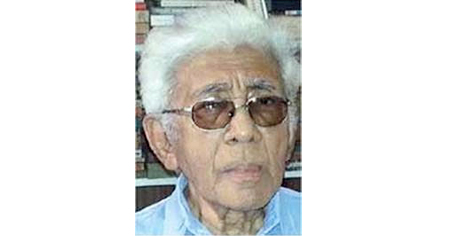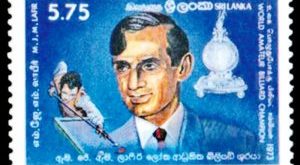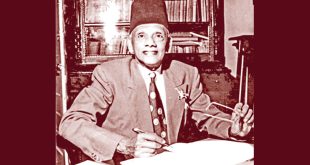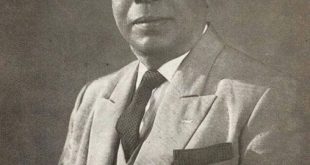
My memory of Mr. Izeth Hussain is brief, for he had retired from the Foreign Service just before I joined in October 1988. Yet, his retirement appeared quite fresh since I recall seeing his name board yet on display at the entrance to the glistening teak paneled room of the Director General, Political Affairs. From senior colleagues I heard of the remarkable presence he had made at the Republic Building from 1952-1988, in a Foreign Service career spanning 36 years.
For a majority of government servants, retirement continues to mean a sort of farewell from the public eye after long years of service. However, as with many other aspects of his multifaceted personality, Mr. Hussain did not follow the beaten track; in fact, emerging more in the public eye than he was during the years of active service. This, he did, in the form of his writings that appeared with breathtaking regularity in the columns of newspapers, magazines and in the electronic media.
What placed him apart was that he wrote with conviction on a gamut of subjects ranging from international affairs, ethnic issues, history, language, religion and the arts including the cinema. Such was his syntax and the manner he approached a subject, he was adored or criticized, praised or despised. Much of that criticism was probably generated on account of his consistently devastating turn of phrase and sentence. It would appear that he thoroughly enjoyed engaging his critics, judging by the great energy with which he would reply them, time after time after time. Izeth Hussain was perfectly capable of being a verbal hurricane!
Another remarkable feature was that his thoughts were in a constant state of flux. They changed in keeping with new information or knowledge that emerged as time went by. In this, he was a votary of the Bertrand Russell School of thought; one that evolved with the passage of time. However, to the end he remained a dyed in the wool and intensely conscious Sri Lankan.
Born in 1927, when Sri Lanka or Ceylon as it was then known, was deep in a colonial setting, Mr. Hussain had a privileged upper middle class upbringing, belonging to one of Colombo’s very prominent Moor families that had made a name for itself in the world of trade and commerce. His parents had opted to give their son a liberal education at St. Joseph’s College, from where he entered the University of Ceylon to read for an English Honors degree under the legendary Professor E.F.C. Ludowyk. This decision was remarkable, given the fact that the Muslim community of the time was just beginning to see new vistas in education. From his dazzling performance in College, it seemed preordained that Izeth Hussain was destined to carve out a career path, far from the one that his family had specialized for generations.
In 1952, he was selected to join the still fledgling Ceylon Overseas Service, which had been established only a few years earlier, and was therefore privy to some of the most watershed moments that the country’s foreign policy went through at the time.
Even though he had left the Foreign Service by the time I joined, some evidence of the reports he had dispatched to the Ministry, while on posting overseas, were still there, even though the pages they were written on were foxed by the passage of time. Those were the days that Foreign Service cadets were required to look up closed files in the Record Room, to get their eye into what foreign affairs and international relations were all about. All of them were in a style and syntax that personified his writings to the media in the post retirement years – very direct, sometimes blunt, but always to the point. The reports constituted a collection of extra ordinary brilliant prose and included those he wrote in the run up to the Cultural Revolution in China while in posting in Beijing or Peking, as it was then known. They were marked by an in-depth mastery of facts as he sought to portray, through a uniquely Hussainique style, how matters were panning out in that country in the throes of yet another remarkable phase in its long history.
Mr. Hussain’s signal contribution in drafting the Colombo Declaration, following the Non Aligned Conference of 1976, is hailed as a high water mark in his long and distinguished Foreign Service career.
There is no gainsaying that Ambassador Izeth Hussain had great confidence in the ideas and views he espoused for so long. He wrote with such passion and joie de vivre. The world of Sri Lankan letters will surely be the poorer by his demise.
AHMED A. JAWAD
High Commissioner for Sri Lanka in Canada
 Sri lanka Muslims Web Portal Diversity and Inclusiveness
Sri lanka Muslims Web Portal Diversity and Inclusiveness



